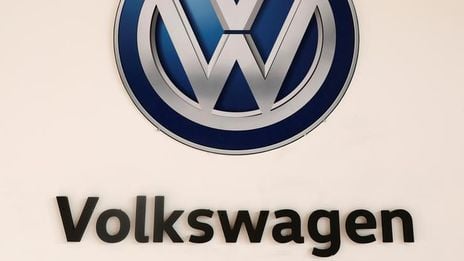What does the transformation in the automotive industry mean for the relationship between carmakers and customers?
Customers will be experiencing our brands in completely new ways. As you know, cars have traditionally been sold through a single channel with a decentralized structure: carmakers sell their vehicles to importers, importers to dealers, and dealers to customers. As manufacturers, we used to have virtually no direct contact with our customers. That will change in the future. We will be offering our customers various channels by which they can come into contact with our brands.
Why isn't the current system suitable for the future?
Our customers are used to other sectors allowing them to communicate seamlessly with a brand through different channels during the purchasing process. They increasingly expect that in the automotive sector as well. Online channels are playing an ever more important role, particularly for younger customers. Nowadays almost all customers inform themselves online. Many have already configured their cars before they go to the dealership. That's why we'll be integrating our online channels more closely with our dealers' operations.
What does that mean in concrete terms?
Let's say you want to configure an electric car like the Volkswagen ID.3*. You do the first three steps on your home computer, then go to a dealership where you would expect to pick up where you left off when talking to the salesperson there. That poses technical challenges, but we're working on making it happen soon for our customers. Not only that, you'll need far fewer clicks to configure our new e-cars than today's cars with combustion engines.
The dealers won't be thrilled when manufacturers bring their cars directly to customers …
The dealers will remain our most important link to customers. Many have known their customers for decades and enjoy a close relationship with them. That's very valuable and we will continue to build on it. At the same time, our customers' expectations are changing, and we have to address that together. Some people will want to order their cars entirely online, and we want to give them that option. By the way, purchasing online doesn't necessarily mean buying directly from manufacturers. We're already helping our dealers to market used cars online in their name. They can use our tools and processes, and don't have to set things up themselves. What's important is that generally we do everything together with the dealerships. Even when customers buy directly from carmakers, they list their preferred partners, who then become involved. We'll be working even more closely together with our dealers than we do now.
Can you give us an example?
Predictive maintenance will become increasingly important as digitalization spreads. In concrete terms this could mean that the cars inform our customers in advance when repairs will be needed or worn parts should be replaced. If customers want, their cars can also contact preferred workshops directly to make an appointment, which the customer then just has to confirm. These are examples of how we're improving our services while also enhancing customer loyalty. We'll also be working even more closely together with dealers when it comes to using data. We've arranged to share all the information with each other - always on condition that the customer agrees.
What else will change as a result of digitalization?
Software functions are becoming stand-alone products that are sold separately from the vehicle. Imagine that you're planning a long trip and would like to have our Lane Assist function. In the future you'll be able to book it at any time - just like you would install a new app on your smartphone today. This is a new principle for us. It gives us the chance to earn a growing share of revenue after the cars are sold.
What does e-mobility mean for sales?
Volkswagen stands for exciting cars - and that will remain the case in the age of e-mobility. Our Group will be putting nearly 70 new electric vehicles on the road by 2028. That means our customers will have a wide selection. At the same time, networking the cars together with the digital ecosystems of our brands will offer many opportunities to further enhance customer loyalty. Together with the dealerships, we are getting to know our customers better, and will therefore be able to address them in much more targeted ways, some of them right there in their cars. Moreover, we'll be able to do over-the-air updates that people already do with smartphones, which means certain innovations can be provided after the cars have been delivered. How vehicles are used will also become more flexible, such as activating a car for friends to use for a specified period of time. For our dealers, the introduction of our new e-models represents another big opportunity because they can offer driving experiences as well as real value in the form of expert consultation. That will enable them to increase existing customer loyalty and also gain new customers. What's important now is to keep working on expanding the charging infrastructure. We're doing our part here together with our Group subsidiary Elli and the IONITY joint venture.
Attachments
- Original document
- Permalink
Disclaimer
Volkswagen AG published this content on 22 May 2019 and is solely responsible for the information contained herein. Distributed by Public, unedited and unaltered, on 22 May 2019 07:37:03 UTC




